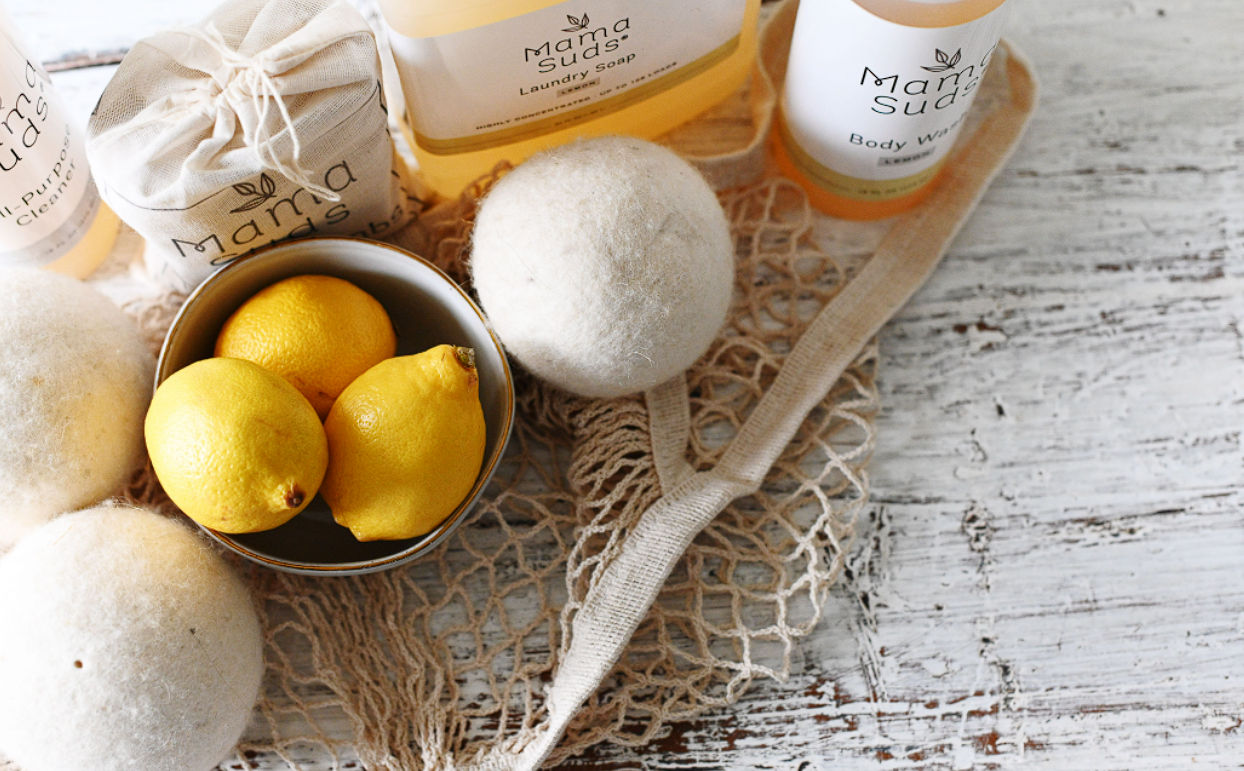
The CleanSuds Blog
Where education and truthful facts are easy to come by.

The Role of Non-Toxic Soaps in Holistic Health Practices
• It emphasizes balance in life for optimal health and wellness.
• Practicing holistic health often includes nutrition, exercise, mental wellness, and natural remedies.
• Non-toxic soaps fit into this approach by avoiding harmful chemicals found in traditional soaps.
• They use natural ingredients like essential oils and organic fats and oils.
• Using non-toxic soaps reduces exposure to toxins in our environment.
• It also benefits skin health as it is gentle and nourishing.
• Choosing non-toxic soaps can be a mindful practice of self-care and contribute to environmental well-being.
• These soaps complement other natural practices like aromatherapy, detox baths, and herbal remedies.
• Incorporating non-toxic soaps is a simple yet profound way to embrace a holistic approach to health.

Self-Care on a Budget: Practical Ways to Prioritize Yourself
In a world where self-care can sometimes feel like a luxury, finding affordable ways to care for yourself is crucial. Prioritizing self-care doesn't have to break the bank. By making small, intentional changes to your routine and mindset, you can cultivate well-being without overspending. Here are some budget-friendly methods to incorporate self-care into your life, ensuring you maintain a balanced and healthy lifestyle without financial strain.
Enhance Your Sleep Quality
Getting more sleep is one of the simplest and most cost-effective ways to practice self-care. Quality rest boosts your mood, improves cognitive function, and enhances overall health. Establishing a consistent sleep schedule, creating a relaxing bedtime routine, and making your sleeping environment comfortable are practical steps you can take. Ensuring you get enough rest each night sets a foundation for other self-care activities, helping you feel more energized and balanced.
Manage Your Finances
Creating a budget ensures you don’t overspend on self-care activities. Start by using free budget templates to systematically organize and manage your financial information. Here’s a solution that lets you customize expense categories, set realistic budget limits, and track and monitor your expenses. This allows you to allocate funds specifically for self-care without feeling guilty or financially strained. A well-planned budget empowers you to enjoy self-care activities with peace of mind.
Discover Affordable Hobbies
Finding an affordable hobby can provide you with joy and relaxation without a hefty price tag. Whether it’s reading, gardening, drawing, or knitting, hobbies offer a creative outlet and a break from daily stressors. Engaging in a hobby can help you disconnect from work and other responsibilities, promoting mental well-being. The key is to choose activities that interest you and fit within your budget, ensuring you can enjoy them regularly.
Embrace Meditation
Meditation is a powerful tool for managing stress and promoting emotional health. You can learn to meditate at home without spending any money. Many free resources, such as online videos and apps, provide guided meditation sessions for beginners. By incorporating meditation into your daily routine, you can enhance your mental clarity, reduce anxiety, and improve overall well-being. The practice of meditation also complements other self-care activities, fostering a more holistic approach to health.
Start a Yoga Practice
Practicing yoga offers numerous physical and mental health benefits. You don’t need to join an expensive studio to enjoy yoga; many free online classes and tutorials are available to help you get started. Yoga enhances flexibility, strength, and mindfulness, making it a valuable addition to your self-care routine. Regular practice can help you manage stress, improve posture, and increase your overall sense of well-being, all without straining your budget or resources.
Exercise at Home
Exercising at home is an excellent way to stay fit without the cost of a gym membership. You can find various free workout videos online that cater to different fitness levels and interests. From bodyweight exercises to cardio routines, home workouts can be effective and enjoyable. Regular exercise improves physical health, boosts mood, and increases energy levels. By committing to a consistent home exercise routine, you can maintain your fitness without financial burden.
Enjoy a Staycation
A staycation can be a refreshing break without the expense of travel. Explore your local area, visit nearby parks, or simply relax at home with activities you enjoy. A staycation allows you to unwind and recharge without the stress and cost associated with travel. You can plan fun and relaxing activities that make you feel like you’re on vacation while staying within your budget. This approach helps you enjoy quality downtime without overspending.
Use All-Natural Cleaners
Using all-natural cleaners in your home ensures a healthier environment by eliminating exposure to harsh chemicals, reducing the risk of allergies and respiratory issues. Additionally, they are eco-friendly, helping to protect the planet by minimizing chemical runoff and waste. Switch to non-toxic cleaning with MamaSuds, offering all-natural products free from harmful chemicals. Protect your family and the environment by shopping our safe and effective household cleaners today.
Self-care is vital for maintaining balance and well-being. By adopting budget-friendly practices, you can nurture yourself without financial stress. These small, intentional changes foster resilience and health, helping you navigate life's challenges more effectively. Embrace these strategies to boost your happiness and well-being without overspending, demonstrating that self-care can be both affordable and impactful.
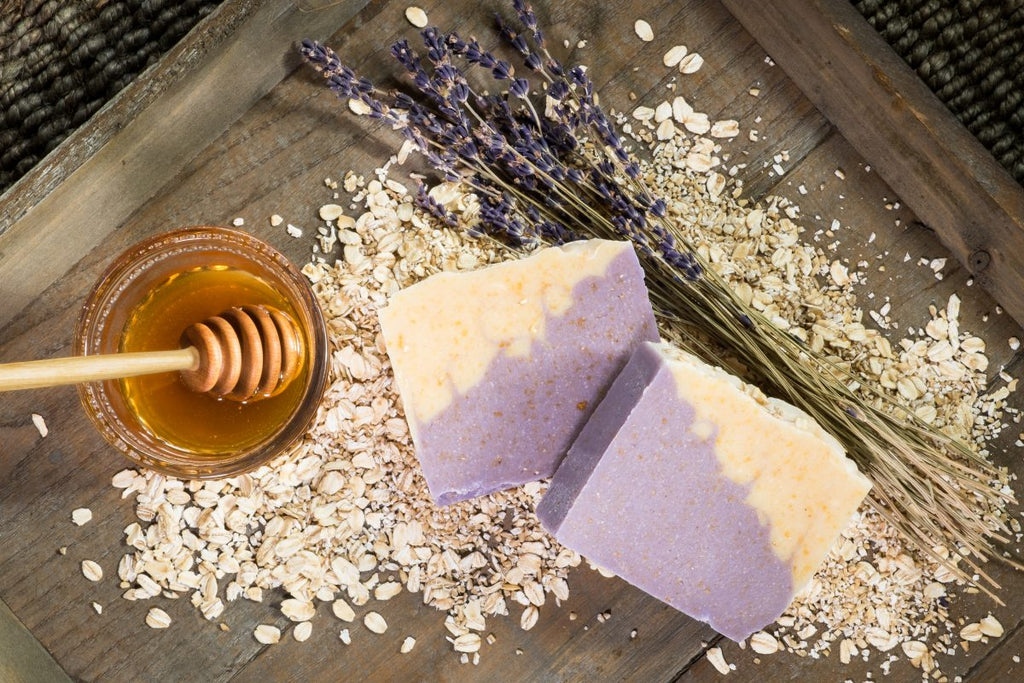
Highlighting Local Ingredients in Soap Making
In recent years, there has been a growing movement towards sustainability and supporting local economies. One area where this shift is particularly evident is in the craft of soap making. By incorporating local, organic ingredients into soap formulations, artisans can create products that are not only beneficial for the skin but also support local farmers and reduce environmental impact. In this post, we’ll explore the benefits of using locally sourced ingredients in soap making and why it’s a practice worth embracing.
The Benefits of Local Ingredients

Supporting Local Economies
When soap makers source ingredients from local farmers and producers, they contribute directly to the local economy. Here’s how:
- Boosting Local Businesses: Purchasing ingredients like olive oil, goat milk, or lavender from nearby farms helps sustain these businesses and fosters a sense of community.
- Creating Jobs: Increased demand for local ingredients can lead to job creation within the community, supporting families and improving livelihoods.
- Encouraging Sustainable Practices: Local farmers often employ sustainable farming methods, which align with the values of eco-conscious consumers and producers.
Reducing Environmental Impact

Using local ingredients in soap making can significantly reduce the carbon footprint associated with production:
- Lower Transportation Emissions: Sourcing ingredients locally minimizes the need for long-distance transportation, thereby reducing greenhouse gas emissions.
- Sustainable Farming Methods: Local, organic farms typically engage in more sustainable practices, such as crop rotation and reduced pesticide use, which help maintain soil health and biodiversity.
- Less Packaging Waste: Local sourcing often means less packaging and fewer resources used in shipping, leading to a reduction in plastic waste and overall environmental impact.
Examples of Local Ingredients in Soap Making
Olive Oil
Olive oil is a staple in many soap recipes due to its moisturizing properties and mild nature. When sourced from local olive groves, it supports regional agriculture and ensures the freshest quality.
Goat Milk
Goat milk is renowned for its creamy texture and gentle exfoliating properties. Local dairy farms producing organic goat milk provide high-quality ingredients while supporting animal welfare and sustainable farming practices.
Lavender
Lavender offers a soothing fragrance and numerous skin benefits. Purchasing lavender from local herb farms supports small-scale growers and ensures that the plants are cultivated without harmful chemicals.
Honey
Honey is a natural humectant, drawing moisture to the skin and providing antibacterial properties. Sourcing honey from local beekeepers not only supports the beekeeping industry but also promotes the health of local bee populations, crucial for pollination and ecosystem balance.
Crafting Soap with Local Ingredients
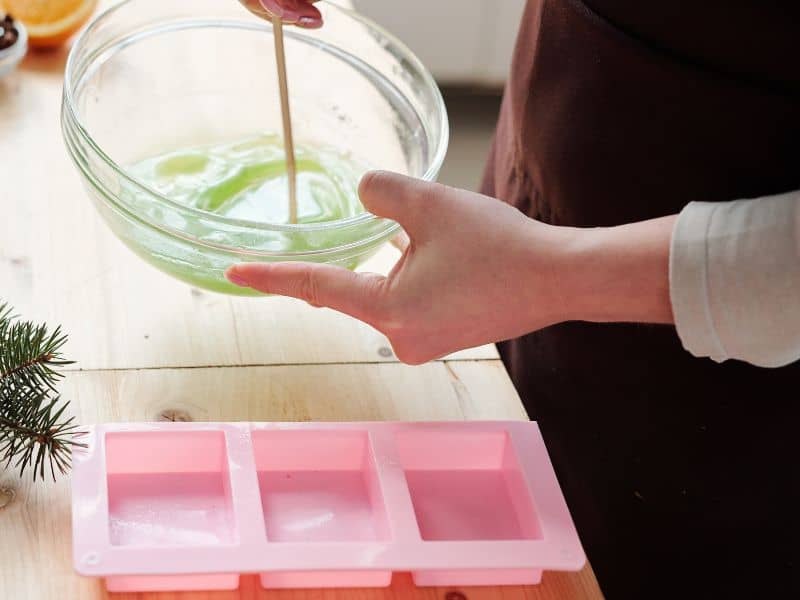
Creating soap with locally sourced ingredients is not just beneficial for the community and the environment; it also enhances the quality and uniqueness of the final product. Here are a few tips for incorporating local ingredients into your soap making:
- Research Local Suppliers: Start by identifying local farms, markets, and producers who offer the ingredients you need. Establish relationships with these suppliers to ensure a consistent and reliable source of high-quality materials.
- Choose Seasonal Ingredients: Take advantage of seasonal produce to create limited-edition soaps that highlight the best of what your region has to offer at different times of the year.
- Transparency and Storytelling: Share the story behind your ingredients with your customers. Highlight the local sources and the benefits of using these ingredients on your labels and marketing materials to build a deeper connection with your audience.
In Conclusion
Incorporating local, organic ingredients into soap making is a powerful way to support local economies, reduce environmental impact, and create high-quality, unique products. By choosing to source ingredients locally, soap makers can contribute to a more sustainable and connected community, fostering a sense of pride and responsibility in their craft. So, the next time you set out to make a batch of soap, consider the local treasures available to you and the positive ripple effects of your choices.

Exploring Essential Oils in Soap Making
• They have unique compositions of chemicals that determine fragrance and therapeutic effects.
• Lavender oil is calming, healing, and adds a fresh floral scent to soaps.
• Tea tree oil is antiseptic, anti-inflammatory, and has a sharp, medicinal aroma.
• Peppermint oil is cooling, invigorating, and gives soaps a crisp minty freshness.
• Eucalyptus oil offers respiratory relief and has a clean camphoraceous scent.
• Rosemary oil enhances mental stimulation and provides a robust herbaceous aroma.
• Lemon oil brightens and purifies with a fresh citrus scent.
• Chamomile oil soothes, aids sleep, and has a sweet fruity fragrance.
• Essential oils enhance soap making with natural fragrances, therapeutic benefits, and aromatherapy benefits.
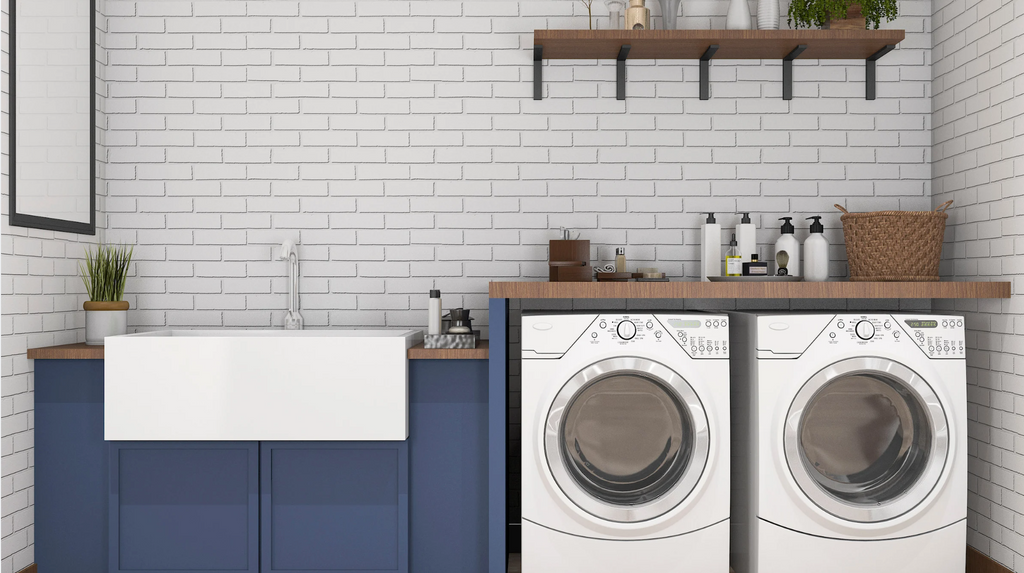
The Ultimate Guide to Finding the Best Clean Laundry Soap for Sparkling Fresh Clothes
Are you tired of laundry soap that leaves residue on your clothes and fails to deliver that sparkling freshness you love? Look no further! In this ultimate guide, we will help you find the best clean laundry soap that will leave your clothes looking and smelling clean.
At MamaSuds, we understand the importance of having clothes that not only look clean but also feel clean. Our mission is to provide you with a laundry soap that tackles even the toughest stains, while still being gentle on your fabrics.
With so many options available on the market, it can be overwhelming to choose the right laundry soap for your needs. That's why we have done the research for you. In this guide, we will break down the key factors to consider when selecting a laundry soap, such as ingredients, fragrance options, and eco-friendliness.
So, whether you're looking for a laundry soap that is free of harsh chemicals, has a delightful fragrance, or is environmentally conscious, we've got you covered. Say goodbye to dingy clothes and hello to a fresh, clean wardrobe with our ultimate guide to finding the best clean laundry soap.
The importance of using clean laundry soap
Using clean laundry soap is crucial for maintaining the longevity and quality of your clothes and washing machine. Conventional laundry soaps often contain harsh chemicals and synthetic fragrances that can damage fabrics, cause skin irritation, and leave behind residue that dulls the appearance of your clothes and decreases the life of your machine.
When you invest in high-quality, clean laundry soap, you're not only protecting your clothes but also your health and the environment. Clean laundry soaps are formulated with gentle, natural ingredients that are effective at removing dirt, grease, and stains without compromising the integrity of your fabrics. They also often come with eco-friendly and biodegradable properties, making them a more sustainable choice.
By using clean laundry soap, you can enjoy the benefits of brighter, clean-smelling clothes that last longer. This not only saves you money in the long run but also reduces your environmental impact by minimizing the need for frequent clothing replacements. Investing in a clean laundry soap is an easy way to make a positive difference in your daily life and contribute to a healthier, more sustainable future.
Understanding the ingredients in laundry soap
When it comes to choosing the best clean laundry soap, it's important to understand the ingredients that go into the formulation. Laundry soaps can contain a wide range of chemicals, some of which can be harmful to both your clothes and your health.
The primary active ingredients in laundry soap are surfactants, which are responsible for lifting and removing dirt, grease, and stains from your clothes. Common surfactants used in conventional laundry soaps include sodium lauryl sulfate (SLS) and sodium laureth sulfate (SLES), which can be harsh and drying on fabrics and skin.
At MamaSuds we use REAL soap as our surfactant. It's imperative that when using real soap as a laundry product it doesn't leave a residue. That's why we make our Castile Soap in house to ensure that no extra fat is used in our formulation.
In addition to surfactants, laundry soaps may also contain optical brighteners, fragrances, and other additives. Optical brighteners, for example, are chemicals that make your clothes appear whiter by reflecting light, but they can also be harsh on fabrics and may cause skin irritation. Synthetic fragrances, on the other hand, can contain a cocktail of chemicals that can trigger allergic reactions and contribute to indoor air pollution.
Common harmful ingredients to avoid in laundry soap
When selecting a clean laundry soap, it's important to be mindful of the ingredients and avoid those that can be harmful to your health and the environment. Some of the common harmful ingredients to steer clear of include:
- Sodium Lauryl Sulfate (SLS) and Sodium Laureth Sulfate (SLES): These surfactants are known for their harsh, drying effects on skin and can also be damaging to fabrics over time.
- Optical Brighteners: These synthetic chemicals are used to make clothes appear whiter, but they can be irritating and may contribute to environmental pollution.
- Synthetic Fragrances: Fragrances can contain a complex mixture of chemicals that can trigger allergic reactions and contribute to indoor air pollution.
- Phosphates: These chemicals can be harmful to aquatic ecosystems and contribute to the eutrophication of waterways.
- PVA (polyvinyl alcohol): Popular in pods and sheets and they dissolve into microplastics which are released into our water system, eventually finding its way into our bodies and aquatic life.
By avoiding these harmful ingredients and opting for clean, natural alternatives, you can protect your clothes, your skin, and the environment while still enjoying the benefits of a sparkling clean wardrobe.
Factors to consider when choosing the best clean laundry soap
When it comes to selecting the best clean laundry soap for your needs, there are several key factors to consider. By taking the time to evaluate these factors, you can ensure that you find a laundry soap that not only cleans your clothes effectively but also aligns with your personal values and environmental concerns.
- Ingredients: As mentioned earlier, it's crucial to carefully examine the ingredient list and avoid harsh chemicals like SLS, SLES, and synthetic fragrances. Look for clean, natural ingredients that are gentle on fabrics and skin, such as plant-based surfactants, essential oils, and biodegradable components.
- Fragrance: If you prefer a fresh, clean scent, consider laundry soaps that use natural essential oils. Avoid products with synthetic fragrances, which can be irritating and contribute to indoor air pollution.
- Eco-Friendliness: Look for laundry soaps that are eco-friendly and sustainable, with certifications such as Leaping Bunny. These products are typically made with renewable, biodegradable ingredients and have a lower environmental impact.
- Effectiveness: Ensure that the clean laundry soap you choose is effective at removing tough stains, grease, and dirt without compromising the quality of your fabrics. Read reviews and consider trying out a few different options to find the one that works best for your needs.
- Skin Sensitivity: If you or any members of your household have sensitive skin, look for laundry soaps that are hypoallergenic and gentle, free of potential irritants like perfumes and dyes.
- Compatibility with Washing Machines: Some clean laundry soaps may be better suited for high-efficiency (HE) washing machines, so be sure to check the product specifications to ensure compatibility.
By considering these factors, you can find the best clean laundry soap that not only delivers sparkling clean clothes but also aligns with your personal and environmental values.
How to properly use clean laundry soap for optimal results
Using clean laundry soap effectively can help ensure that your clothes come out sparkling clean and fresh every time. Here are some tips for properly using clean laundry soap:
- Follow the Dosage Instructions: Clean laundry soaps are often more concentrated than conventional detergents, so it's important to follow the recommended dosage instructions on the packaging. Using too much can lead to excessive suds and residue, while using too little may not effectively clean your clothes.
- Adjust for Load Size and Soil Level: The amount of laundry soap you use should be adjusted based on the size of your load and the level of soil or stains on your clothes. Larger loads or heavily soiled items may require a slightly higher amount of soap.
- Use Warm or Hot Water: Clean laundry soaps work best when used with warm or hot water, as this helps to activate the cleaning agents and lift dirt and stains more effectively.
- Pre-treat Stains: For tough stains, it's a good idea to pre-treat the affected areas with a small amount of clean laundry soap or a dedicated stain remover before washing. This can help to break down the stain and make it easier to remove.
- Avoid Overloading the Washing Machine: Overloading your washing machine can prevent the clean laundry soap from circulating properly and may lead to incomplete cleaning. Be sure to follow the manufacturer's recommendations for load size.
- Use the Appropriate Cycle: Different types of fabrics and soil levels may require different wash cycles. Consult your washing machine's manual and the care instructions on your clothing to determine the best cycle for your clean laundry soap.
By following these tips, you can ensure that your clean laundry soap is used effectively, resulting in sparkling clean clothes that last longer and feel fresher.
DIY recipes for making your own clean laundry soap
For those who are interested in taking a more hands-on approach to their laundry routine, making your own clean laundry soap can be a rewarding and cost-effective option. Here are a couple simple DIY recipes to try.
When making your own clean laundry soap, be sure to use high-quality, natural ingredients and store the finished product in an airtight container to maintain its effectiveness. Additionally, always test a small batch first to ensure that the recipe works well with your washing machine and clothing.
Conclusion: Finding the best clean laundry soap for your needs
In conclusion, finding the best clean laundry soap for your needs is a crucial step in maintaining a fresh, clean wardrobe and reducing your environmental impact. By understanding the importance of using clean laundry soap, familiarizing yourself with the key ingredients to avoid, and exploring the different types of clean laundry soap options available, you can make an informed decision that aligns with your personal and environmental values.
When selecting the best clean laundry soap, consider factors such as ingredient transparency, fragrance preferences, eco-friendliness, and effectiveness in removing tough stains and odors. Refer to the reviews and recommendations provided in this guide to help you narrow down your options and find the perfect clean laundry soap for your household.
Remember, the benefits of using a clean laundry soap go beyond just sparkling clean clothes. By investing in high-quality, natural products, you're also contributing to a healthier, more sustainable future. So, take the time to explore the clean laundry soap options available and find the one that works best for you and your family.

How to Clean Quartz Countertops
A Guide to Keeping Your Quartz Surfaces Sparkling with MamaSuds
Quartz countertops are a beautiful addition to any kitchen or bathroom. They offer the elegance of natural stone with the durability and low maintenance of engineered surfaces. But just like any other surface in your home, quartz countertops need a little TLC to keep them looking their best. Here’s how you can keep your quartz countertops sparkling clean using MamaSuds products.
Why Quartz Needs Special Care
Quartz is non-porous, which means it resists stains and doesn’t harbor bacteria. However, it can still accumulate dirt, grime, and oils from daily use. While quartz is tough, it can be sensitive to harsh chemicals, so it's important to use the right cleaning products that are gentle yet effective.Step 1: Daily Cleaning with MamaSuds All-Purpose Cleaner
For daily maintenance, you’ll want to keep your countertops free from crumbs, spills, and other residues. MamaSuds All-Purpose Cleaner is perfect for this task. It’s made with non-toxic, biodegradable ingredients, making it safe for your family and the environment.How to Use: Simply spray the MamaSuds All-Purpose Cleaner directly onto the countertop surface. Use a soft, damp cloth to wipe away any debris. For tougher spots, let the cleaner sit for a few minutes before wiping it away. This cleaner is gentle enough for daily use and will leave your quartz looking spotless without any streaks or residue.
Step 2: Deep Cleaning with MamaSuds Castile Soap
Even with regular cleaning, your quartz countertops may occasionally need a deeper clean to remove stubborn grease or stuck-on grime. MamaSuds Castile Soap is up to the task! This versatile, plant-based soap is safe for all surfaces, including quartz.How to Use: Mix a few drops of MamaSuds Castile Soap with warm water in a bowl or bucket. Dampen a soft cloth or sponge with the soapy water and gently scrub the countertop. Focus on any areas with visible stains or buildup. Rinse the cloth or sponge with clean water and wipe down the countertop to remove any soap residue. Finally, dry the surface with a clean towel to restore its shine.
Step 3: Preventing Stains and Damage
While quartz is resistant to most stains, certain substances like wine, coffee, or acidic foods can cause discoloration if left too long. To prevent stains and damage:Wipe Up Spills Immediately: Use the MamaSuds All-Purpose Cleaner to quickly clean up any spills. The faster you act, the less likely the spill will cause a stain.
Use Trivets and Cutting Boards: Protect your countertops from heat and scratches by always using trivets for hot pans and cutting boards for chopping.
Avoid Harsh Chemicals: Stay away from bleach, ammonia, and other abrasive cleaners. MamaSuds products are designed to be gentle on your surfaces while still providing powerful cleaning action.
Step 4: Polishing Your Countertops
To give your quartz countertops that extra shine, you can polish them using a soft cloth. While MamaSuds doesn’t offer a specific polish, the residue-free nature of our products ensures that your countertops will retain their natural luster.How to Use: After cleaning your countertops, buff them with a dry microfiber cloth in a circular motion. This will enhance the natural shine of the quartz and keep your kitchen or bathroom looking luxurious.
Final Thoughts
Cleaning quartz countertops doesn’t have to be a chore, especially when you’re using eco-friendly, non-toxic products like those from MamaSuds. Our All-Purpose Cleaner and Castile Soap provide an effective, safe, and simple solution to keeping your surfaces clean and your home healthy. Plus, by choosing MamaSuds, you’re making a choice that’s good for the planet, too!
So, next time you’re tidying up your kitchen or bathroom, reach for MamaSuds and enjoy the peace of mind that comes with knowing your home is clean, safe, and sparkling.
Ready to give your quartz countertops the care they deserve? [Shop MamaSuds now](#) and discover the difference that truly clean can make!
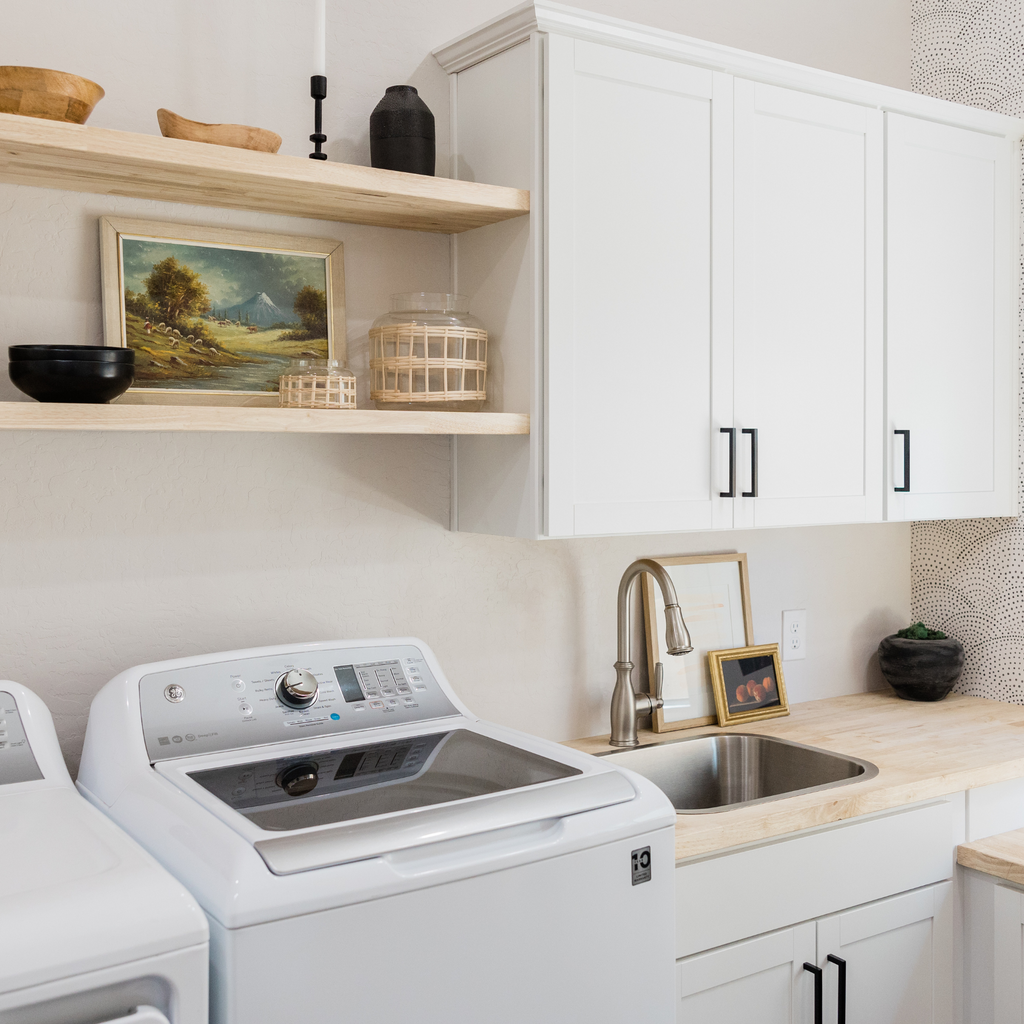
How to Clean Your Washing Machine Using Toilet Bomb Powder
Toilet bomb powder is an eco-friendly and effective way to clean your washing machine.
• It contains natural ingredients that break down residues and eliminate odors without harsh chemicals.
• To use, add 2-3 tablespoons of powder directly into the empty machine drum on hot water setting.
• Run a long cycle for the cleaning agents to work, then wipe down the interior and clean the dispenser and seals.
• For optimal maintenance, repeat this process once a month and leave the door open for ventilation.
• Avoid using too much powder to prevent residue build-up.

The Importance of Safe Ingredients in Cleaning Products
In today’s fast-paced world, cleaning our homes is an essential routine to maintain a healthy and comfortable living environment. However, the choice of cleaning products we use can significantly impact not only the cleanliness of our homes but also the health of our families and the environment. With a growing awareness of the potential hazards of conventional cleaning products, it’s more important than ever to understand the importance of safe ingredients in cleaning products.
The Hidden Dangers of Conventional Cleaning Products
Many conventional cleaning products contain a variety of chemicals that can pose risks to human health and the environment. These can include:
- Volatile Organic Compounds (VOCs): Commonly found in air fresheners, disinfectants, and cleaners, VOCs can cause respiratory issues, headaches, and even contribute to chronic conditions like asthma.
- Phthalates: Often used in fragranced cleaning products, phthalates have been linked to endocrine disruption and reproductive health issues.
- Triclosan: An antibacterial agent found in many household cleaners and soaps, triclosan can contribute to antibiotic resistance and has been associated with hormone disruption.
- Ammonia and Chlorine: Powerful cleaning agents that can cause skin and eye irritation, respiratory problems, and even chemical burns.
These ingredients can linger in our homes, posing long-term health risks to family members, including children and pets, who are more vulnerable to chemical exposures.
Benefits of Safe Ingredients
- Healthier Home Environment: Safe cleaning products reduce the risk of chemical exposure, ensuring a healthier environment for everyone in the household. This is particularly important for individuals with allergies, asthma, or other respiratory conditions.
- Environmental Protection: Eco-friendly cleaning products are biodegradable and free from harsh chemicals that can contaminate water supplies and harm wildlife. By choosing safe ingredients, we can minimize our ecological footprint.
- Improved Indoor Air Quality: Many conventional cleaners release VOCs that contribute to indoor air pollution. Safe, non-toxic cleaning products help maintain better indoor air quality, promoting overall well-being.
- Gentle on Surfaces: Safe cleaning products are typically gentler on surfaces, prolonging the life of furniture, appliances, and fixtures without sacrificing cleaning effectiveness.
Key Safe Ingredients to Look For
When selecting cleaning products, it’s essential to look for ingredients that are both effective and safe. Some key ingredients to look for include:
- Vinegar: A natural disinfectant that effectively cuts through grease and grime.
- Baking Soda: A gentle abrasive that deodorizes and cleans without scratching surfaces.
- Essential Oils: Natural oils like tea tree, lavender, and eucalyptus not only add pleasant scents but also have antimicrobial properties.
- Plant-Based Surfactants: Derived from renewable resources like coconut or corn, these surfactants effectively lift dirt and grease without harmful residues.
- Citric Acid: Found in citrus fruits, citric acid is excellent for removing hard water stains and soap scum.
Making the Switch to Safe Cleaning Products
Transitioning to safe cleaning products doesn’t have to be overwhelming. Start by:
- Reading Labels: Look for products labeled as non-toxic, biodegradable, and free from harsh chemicals. Certifications from third-party organizations like Green Seal or EcoLogo can also be helpful indicators.
- DIY Solutions: Consider making your own cleaning solutions using simple, safe ingredients like vinegar, baking soda, and essential oils.
- Supporting Eco-Friendly Brands: Choose brands that are transparent about their ingredients and committed to sustainability and safety.
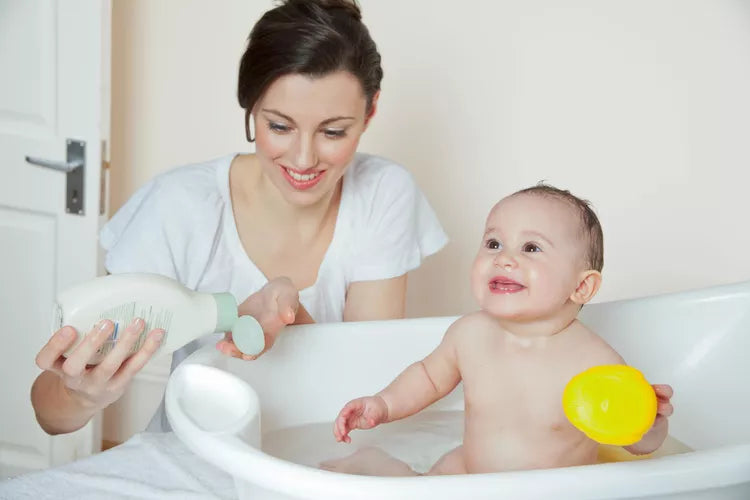
Non-Toxic Soaps for Babies and Children
• Chemical-free soaps minimize exposure to harsh ingredients and promote healthy skin development.
• Look for natural oils, essential oils, and plant-based extracts in non-toxic soaps.
• Avoid sulfates, parabens, synthetic fragrances, and phthalates when choosing a soap for your child.
• Consider fragrance-free options for extra sensitive skin and always do a patch test before using a new soap.


